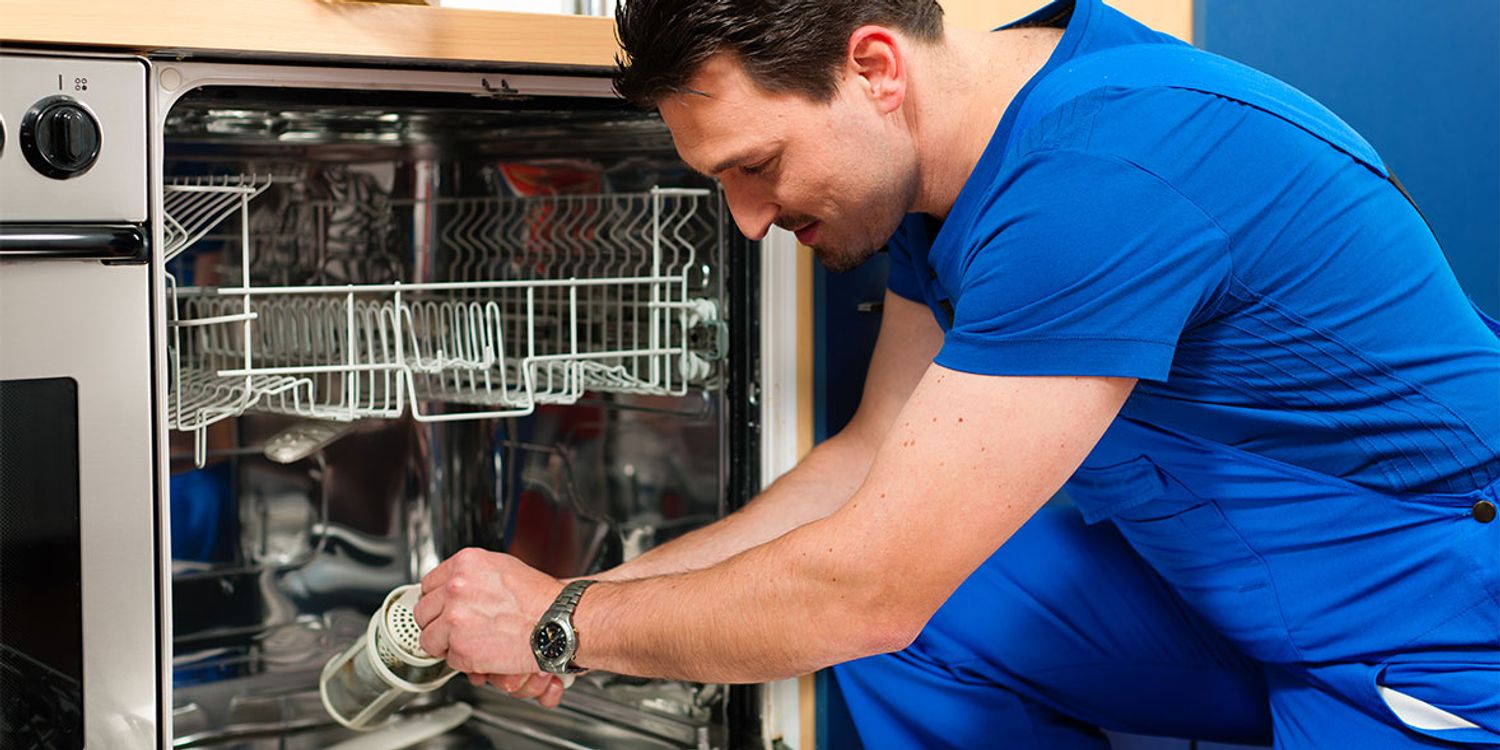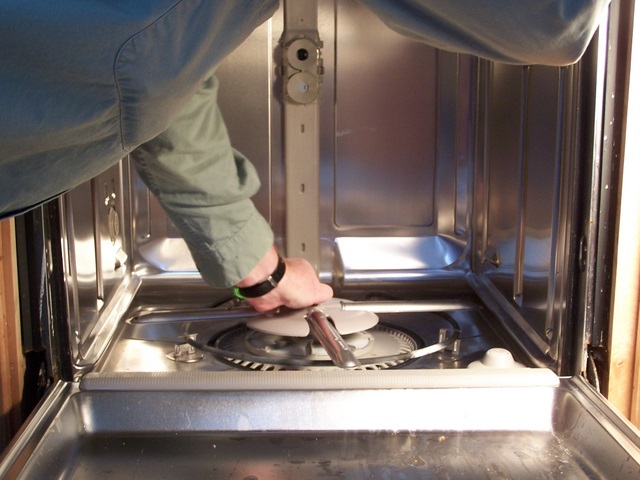They are making a few great points regarding How to Troubleshoot & Repair a Dishwasher overall in the content which follows.

Having your dishwasher break down or breakdown can be a big deal and also trigger some discomfort at home. Dish washers are machines that we use to tidy dishes and also cutleries automatically to save us the stress and anxiety of by hand doing it.
Like every other device that alleviates human effort, dishwashing machines can break down and also establish some fault eventually in time. There are numerous faults your dishwasher could establish, and while some of them can be resolved by changing some parts or repairing them, various other much more serious issues will require that you obtain a brand-new dish washer.
This short article will determine a couple of typical faults your dish washer might create to hinder its total efficiency as well as exactly how these faults can be resolved.
Typical Mistakes
Typical dish washer mistakes can vary from minor to significant ones. Relying on the degree, you will certainly either need the solutions of expert plumbings to take care of or change it.
Some of one of the most common faults consist of:
Leaky Dish washer
This is probably one of the most everyday dishwashing machine trouble, and also fortunately is that it is simple to recognize. Leaks happen because of several factors, and also the leakages can make a mess of your kitchen area. Typical causes of dishwasher leakages include;
If your meals as well as flatwares come out of the dish washer and still look filthy or dirty, your spray arms may be a trouble. In a lot of cases, the spray arms can obtain obstructed, and it will certainly require a fast tidy or a replacement to function efficiently again.
Failure to Drain pipes
In some cases you might observe a big amount of water left in your tub after a wash. That is possibly a drainage issue. You can either inspect the drainpipe tube for problems or clogs. When doubtful, contact an expert to have it inspected and also taken care of.
This is an additional typical dishwashing machine issue, as well as it is mainly brought on by food particles or grease sticking around in the device. In this instance, search for these fragments, take them out and do the meals without any meals inside the maker. Wash the filter extensively. That will aid get rid of the negative scent. Guarantee that you remove every food particle from your dishes prior to moving it to the machine in the future.
Verdict
Several of these typical dishwashing machine faults can be fixed quickly in the house, yet in some cases, the faults could be substantial and also might call for the focus of professionals. If you reside in Rochester, Syracuse, as well as various other parts of America, allowed the experts properly identify what could be wrong with your dishwashing machine as well as extend a service.
We likewise set up dishwashing machines if you just bought a brand-new one or intend to change your very own. With our several years of experience in the industry, we make sure to provide you the best possible solutions.
8 Most Common Dishwasher Problems & How to Fix Them
My Dishwasher Isn't Draining
If your dishwasher isn't draining properly, you may be having an issue with your dishwasher's drainage system. This can be caused by a variety of issues:
Clogged drain: The dishwasher's drain may be clogged with food particles or other debris. Malfunctioning pump: The dishwasher's pump is responsible for moving water through the system and out of the drain. If it's damaged or not working correctly, it could cause a drainage failure. Broken or clogged hose: The dishwasher's drain hose may be broken or clogged, causing water to back up in the system. How to Fix Dishwasher Not Draining
Check the drain for any blockages. A clogged or kinked hose will prevent water from properly draining out of the dishwasher. Use a plunger or a pipe snake to clear any debris that may be blocking the drain. Check the dishwasher's pump for damage or malfunction. Consult the manufacturer's manual or call a professional appliance repair service if you think the pump may be the issue. Check the drain hose for any damage or blockages. The hose should be straight and free of any debris or kinks. Check the drain pump filters for any blockages if the hose is clear, but the dishwasher is still not draining. Some dishwashers have filters that can become clogged with food particles or debris. Cleaning or replacing the filters may help resolve the issue. Run a dishwasher cycle to make sure the water is properly draining out. My Dishwasher Is Leaking
A leaking dishwasher can be frustrating. There are a few possible causes that you can investigate to try and diagnose the issue:
Inspect the dishwasher for any visible signs of damage or wear and tear. Look for cracks or holes in the door and around the rubber seal. Check the hoses and pipes connected to the dishwasher for any signs of leaking. If there is no visible damage, you may hear the sound of water dripping or the sound of the water pump running. This might mean a problem with the water inlet valve or the drain pump. You may also notice a puddle of water on the floor near the dishwasher. This could indicate a blocked drain hose or a faulty drain pump. Finally, check the seals around the door and the door for any signs of damage, wear and tear, or improper installation. If any of these issues are present, they must be fixed immediately to avoid further water damage. How to Fix a Leaky Dishwasher
Identify where the leak is coming from. The most common places for a dishwasher to leak include the door, hoses, and pump. If the leak is coming from the door, the gasket or seal may need to be replaced. If the leak is from the hose or pump, the damaged parts should be replaced with new ones. Finally, check all the connections and make sure they are secure and not leaking How to Fix a Dishwasher That Won't Start
The perfect remedy for a dishwasher that won't start is confirming all the components are in perfect working order and that the wiring is in good condition. Next, inspect the motor and replace it if necessary.
If these steps do not resolve the problem, contact a professional appliance repair technician to diagnose and fix the issue.
Conclusion
Most dishwashers are reliable appliances with a long lifespan. As with all devices, checking your dishwasher regularly will help you quickly identify any issues and ensure that it is running efficiently.
And if you're in the market for a new dishwasher, don't let dishwasher problems ruin your day. Upgrade to a reliable, efficient model today! Check out our full selection of top-quality dishwashers that includes a range of styles and features to suit any budget and household needs.
https://www.coastappliances.ca/blogs/learn/common-dishwasher-problems

As a fervent person who reads on Common Dishwasher Problems, I figured sharing that excerpt was worth the trouble. Make sure you take the time to distribute this blog if you enjoyed reading it. Thank you for taking the time to read it.
Professional help? One call away.